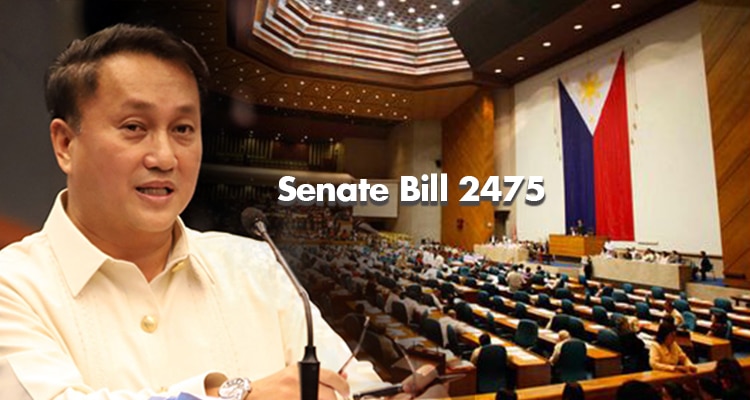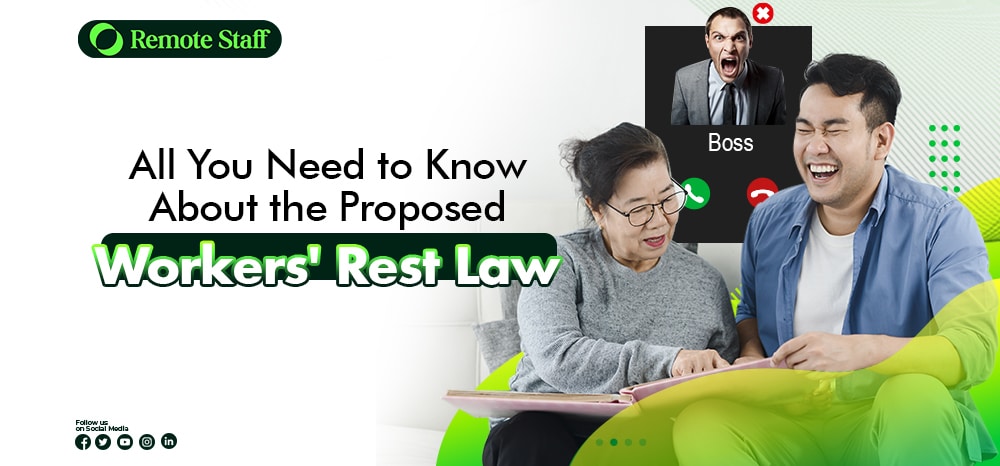A clear sign that your employer doesn’t respect your boundaries is if they decide to contact you during after-work hours. These employers seem to think the “flexible” part of a flexible schedule means you’re available 24/7. Fortunately, these instances will end if Congress passes the proposed Workers’ Rest Law.
House Bill 10717, also known as the Workers’ Rest Law, forbids employers from giving non-urgent calls to employees after work hours. With this bill, employees can enjoy their free time with their loved ones without worrying about their boss calling them out of the blue.
Want to know more about this proposed labor law and its benefits? Then read on to find out more.

What is the Proposed Workers’ Rest Law?
Calamba City Representative Joaquin Chipeco Jr. filed the Workers’ Rest Law to help improve work conditions in the country. In the bill’s explanatory note, he states:
“Studies, therefore, have shown that under the “new normal,” many workers, particularly those who are on a work-from-home arrangement basis end up rendering beyond the maximum hours of work provided under the law. This emerging trend does not bode well for the mental health of the employees, not to mention family solidarity.”
Under the Workers’ Rest Law, unless the employee consents to it, it is illegal for employers to do the following during employee “rest hours” or “any period other than the hours of work”:
- Requiring employees to work;
- Requiring employees to be on duty, to travel, or be at a prescribed place for work or work-related activities, such as attending seminars, meetings, team-building, and other similar activities; and
- Contacting the employee for work and work-related purposes through phone, email, message, and other means of communication, unless it is for the purpose of notifying the employee of the necessity of rendering emergency or urgent work.
Violators shall pay the employee Php 1,000 per hour of work rendered, or a fraction thereof.

Why is This Law So Important?
Besides the obvious need for employees to rest and have their own time, working beyond the maximum allotted work hours is also illegal. According to the labor code of the Philippines, work hours should never exceed 8 hours a day. Unless your employer pays you for overtime, they’ll face charges if they demand you to work beyond 8 hours.
On the subject of giving employees rest, many employees feel more stressed and burned out working remotely than in an office, according to a study. This is despite the increase in productivity shown by employees compared to an office-based one.

How Employees Reacted to These Proposals?
Employees received the proposed Workers’ Rest Law with mixed results. Some received it positively, citing the need for preserving the work-life balance. They also welcomed the protection against abuse by their employers by working them for extra hours without extra pay.
On the other hand, some believe that giving a better minimum wage would better solve this issue. These people argue that employees work long shifts because the minimum wage isn’t enough. Particularly now that many necessities have seen a price hike.

Other Proposals Similar to the Workers’ Rest Law.
The Workers’ Rest Law isn’t the only law proposed to protect employees from being overworked by their employers. House Bill 10717 has a counterpart in the Senate, filed by Sen. Francis Tolentino: Senate Bill 2475. This bill and its congressional counterpart are the same, although the senate bill came first.

Everybody Needs a Break Every Now and Then.
A common misconception by employers and employees is mistaking efficiency with the number of hours you have on your timecard. Employers should never require employees to compromise their well-being or bonding time with loved ones for the job.
Fortunately, policies protecting employees against such abuse now exist. The proposed Workers’ Rest Law, both congressional and its senatorial counterpart, is meant to preserve an employee’s right to disconnect after work hours.

